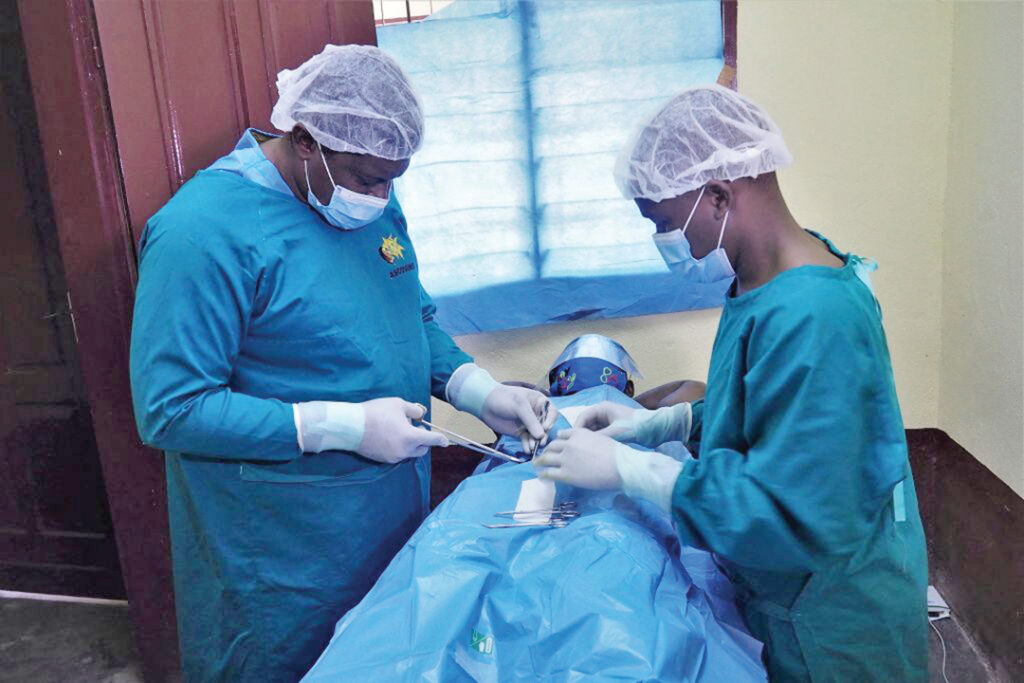AGENCE FRANCE-PRESSE
During the week, Dr. Georges Bwelle, 49, specializes in intestinal surgery at the main hospital in Yaoundé, Cameroon’s capital. On weekends, though, he takes to the road.
He leads a team of volunteers that crams into a minibus and heads out into remote areas. The tiny mobile clinic provides basic health care to those in need.
Recently, his nongovernmental organization (NGO), called ASCOVIME, visited the prison at Nkongsamba, about 350 kilometers northwest of Yaoundé. Team members examined nearly 500 prisoners and their family members.
Volunteers brought in equipment, transforming a room near the cells into a small field hospital, with departments for general medicine, ophthalmology, dentistry and minor surgery.
An inmate, 35, soon emerged from the operating room after surgery to repair a hernia.
“Thank God I have been freed from this ailment — the doctors looked after me,” he said.
Bwelle’s drive to help others can be traced to his childhood.
Born into a family of modest means, the young Bwelle saw his father’s health deteriorate because he had no access to a specialist doctor after a road accident.
After his studies, Bwelle began to travel throughout his country.
“With the little money I had, I bought medicines and treated three or four people, then 10, then 100,” he said.
Little by little, a team of doctors with a panoply of skills gathered around him.
In 2008, he set up ASCOVIME, an acronym in French meaning Association of Skills for a Better Life.
The NGO carries out about 40 missions a year, provides medical consultations to 40,000 people, carries out about 1,400 operations and gives school equipment to 20,000 children.
Most of the time, ASCOVIME visits rural areas where health care is scarce and difficult to access.
The most frequent medical complaints are malaria, joint pain and hernias — problems linked to working the land, Bwelle said.

